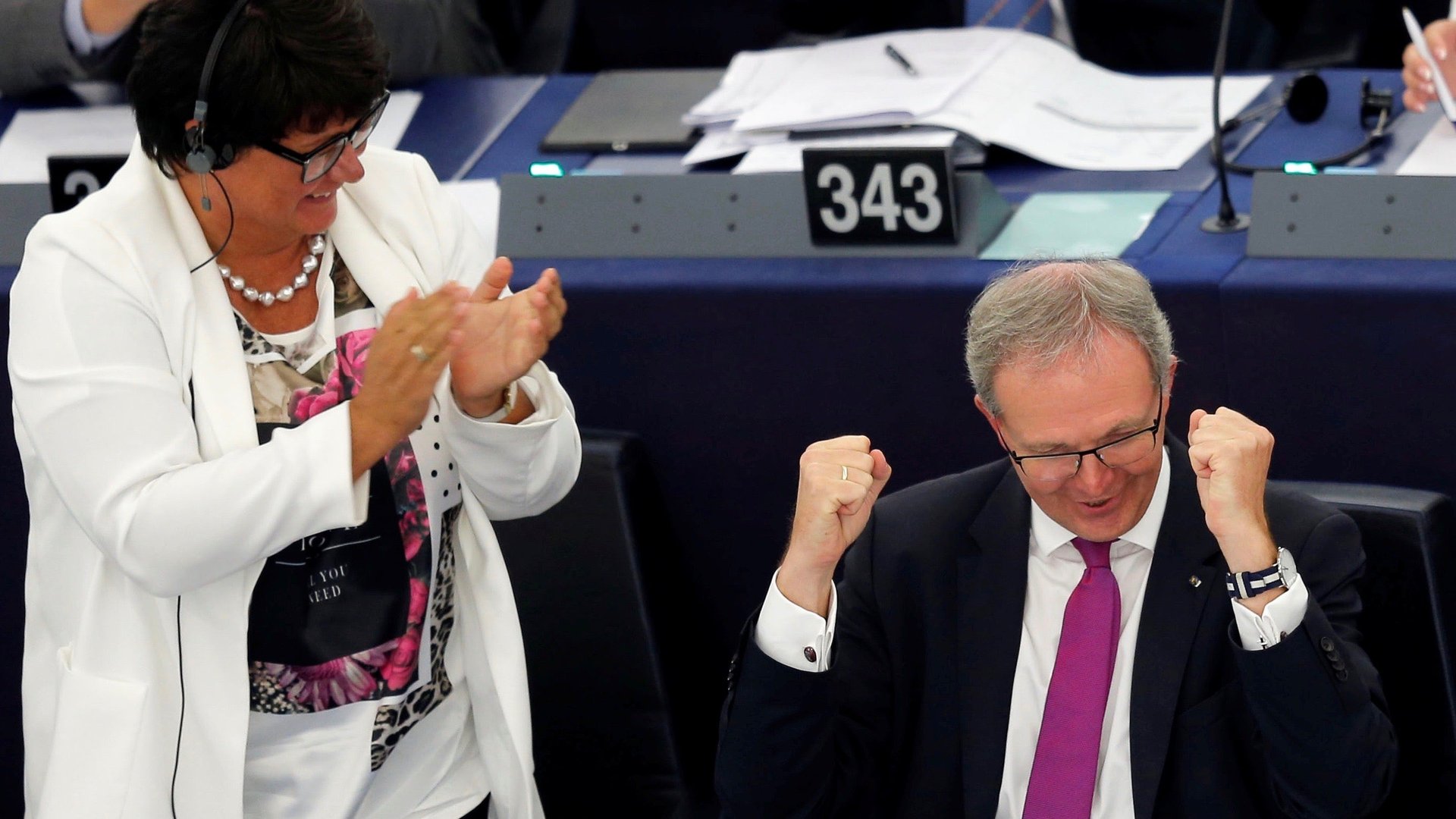The man behind the EU’s copyright law is “surprised” by what’s in the proposal
The European Union Parliament on Sept. 12 voted to approve new copyright laws that will transform how people in Europe and beyond use and profit from the internet. But even the man behind the legislation, Axel Voss, was apparently unaware of what exactly he voted for.


The European Union Parliament on Sept. 12 voted to approve new copyright laws that will transform how people in Europe and beyond use and profit from the internet. But even the man behind the legislation, Axel Voss, was apparently unaware of what exactly he voted for.
Emanuel Karlsten, a reporter for Sweden’s Breakit news site, spoke with Voss, a Member of the European Parliament (MEP) and the EU’s copyright rapporteur, after the vote. Karlsten asked about a last-minute amendment that will bar the filming of sports events. The MEP replied in a recorded conversation, “This was kind of mistake I think by the JURI committee. Someone amended this. No one had been aware of this.”
European Parliament press officer John Schranz at that point broke in to explain that he was aware of the provision in question, calling it “amendment 76.” Schranz said that the amendment doesn’t bar individuals from filming sporting events. Rather, “the main target” is online betting companies enticing viewers to their sites with video that they have no right to film. He objected to the fact that the “Greens and others” interpret the provision as having a much wider application.
But the MEP Voss admitted, “I didn’t know that this was in the proposal so far, so of course I have to deal with it now. I do not consider that the commission and council will have this inside the proposal.” Voss added that “because of the time pressure” and general focus on other, more notable aspects of the law, it’s possible that the measure was insufficiently scrutinized. But he reassured Karlsten that MEPs will be meeting again to go over the law in its entirety. “Of course we have to discuss this,” he said of the provision in question.
Voss isn’t kidding when he says he’s been busy. The controversial Copyright Directive, which aims to compensate content creators and limit intellectual property violators, was rejected in July. Two sections of the legislation in particular have been in dispute—Article 11, which would charge a link tax to news aggregators, and Article 13, which would require platforms to install software that reviews content for copyright violations.
Vocal opponents, including tech giants like Google, Facebook, and Apple as well as internet pioneers like Vint Cerf, argue that the law will stifle the flow of information on the web and turn corporations into intellectual property police, using technology that’s insufficiently nuanced for the task. Meanwhile, supporters—musicians, filmmakers, news publishers—say the law would right an imbalance online and ensure that content creators are compensated for their contributions to culture.
Karlsten notes that MEPs complained at a press conference after the vote yesterday that Facebook and Google tried to manipulate their votes with email campaigns, ignoring the fact that messages were also sent by concerned individuals. “They do not believe people in Europe really are worried about what this directive will bring,” the Swedish reporter contends.
He tells Quartz that Voss’s surprise about the sport filming provision is indicative of a much larger problem. “I was actually flabbergasted by my time in the parliament. It exceeded my worst fears about the competence of the MEPs handling of this directive.” With over 250 amendments up for vote, the MEPs were likely overwhelmed. Karlsten suggests, “That is a lot more than they are used to. But still: [Schranz] knew about this very amendment, when Voss did not. So this is something that was meant to be there—for some reason, by someone’s concern. It is mind-boggling that Voss voted for it, when he really thought it was a bad idea.”
The reporter believes the copyright rapporteur was either deceived or indifferent. Either way, that’s not a great sign.
Correction: An earlier version of this story referred to the reporter as “Karisten.” His name is Karlsten.